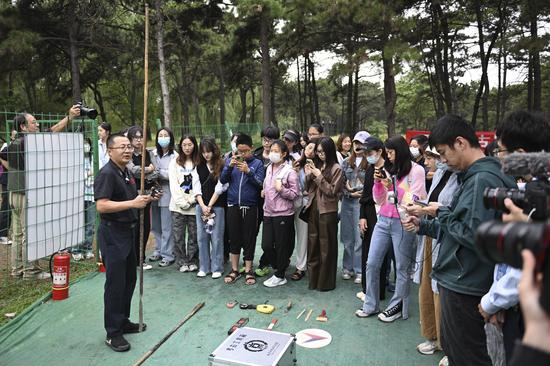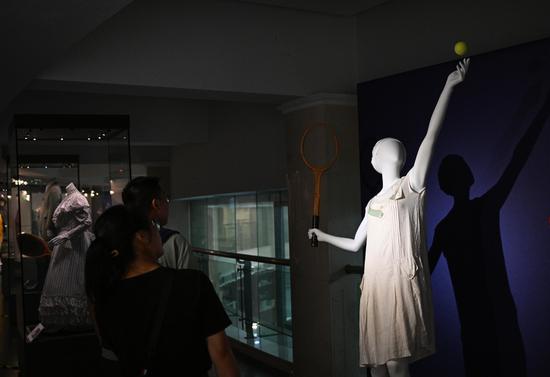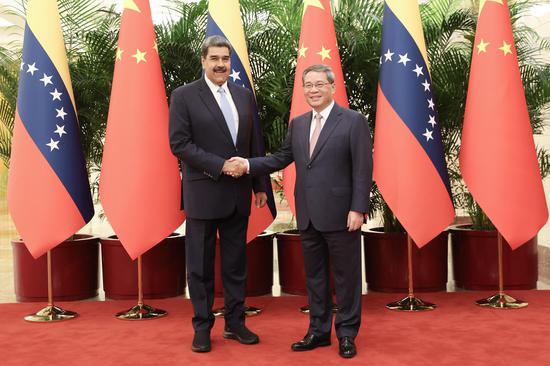The Chinese national security agency exposed several cases of espionage through telecommunications fraud on Monday, reminding netizens to be wary of not only telecommunications fraud from northern Myanmar, but also low-interest loans, dating apps, high-paying part-time jobs and other spy networks.
Recently, there have been frequent reports of successful disruption of telecommunications fraud in the country, with 1,482 suspects involved in fraud cases in northern Myanmar being handed over to Chinese authorities. However, behind the various types of information and disguises on the internet, there is not only telecommunications fraud in northern Myanmar, but also spy networks.
A retired soldier named Xiao Jun (pseudonym) accumulated a huge amount of debt due to his addiction to online gambling. To repay his debts, he started looking for online loans and met a foreign intelligence officer who posed as a manager of an online loan company.
After learning about Xiao Jun's identity as a retired soldier, the spy officer said that as long as Xiao Jun provided proof of his retirement, he could apply for interest-free loans. If he could provide confidential military information, not only could he clear his debts, but he could also quickly become wealthy.
Chasing the dream of getting rich, Xiao Jun thought he had found a "lifesaver" and decided to take the risk of revealing all the military secrets he knew during his service to the spy officer. Chinese national security soon uncovered Xiao Jun's selling of state secrets.
Liu, who lives near an important classified military site, is enthusiastic about making friends online. One day, as usual, while using the "shaking" function on his phone to find people nearby, Liu encountered a beautiful woman. The woman greeted Liu warmly and sent him some nude photos. To gain the favor of the woman, Liu followed her request and took photos and surveyed sensitive military sites near his home. Soon, national security agencies discovered Liu's illegal activities and quickly took action to arrest him.
Upon investigation, the true identity of the woman turned out to be a foreign spy who used "virtual positioning" to connect with people near sensitive military sites to gain access to classified information.
Wang is a technician in a military-industrial enterprise. Due to financial difficulties at home, he had the idea of working part-time online and posted job-seeking information on a recruitment website. To enhance the "value" of his resume, Wang specifically emphasized his work in the military-industrial enterprise in his personal information. Shortly after, a foreign consulting company sent an email to Wang, offering him a high-paying job as a consultant.
Wang was quickly captivated by their generosity and gradually lost himself, crossing his moral boundaries. With the mentality of getting rich overnight and making a quick profit, he sold military secrets to the foreign party, before being arrested by law enforcement department.
Cao is a clerk in an office under a sensitive government agency. Due to his strong writing ability, he developed the idea of earning extra money by writing papers after encountering the novelty of online ghostwriting. Cao posted ghostwriting information on multiple online platforms, and was soon contacted by a foreign intelligence agency through an individual posing as "commissioner Deng" from a foreign research institution.
After learning about Cao's work situation, the other party hired him as a consultant and promised to support his future research work abroad. Tempted by these promises and the illusion of becoming a professor abroad, Cao became deeply immersed and intended to sell confidential documents. After national security agencies were tipped off, Cao was promptly taken into custody by Chinese law enforcement.
In another case, Zhang, an aviation manufacturing industry worker joined several model aircraft enthusiasts groups on various social media platforms. During the group chats, Zhang unintentionally revealed information about his involvement in the aviation manufacturing industry.
A netizen immediately contacted Zhang and the two began frequent interactions. After some time, the netizen requested photos of new aircraft from aviation exhibitions. Upon receiving the photos, the netizen further demanded that Zhang take photos of the inside of his workplace.
At this point, Zhang suddenly realized the situation and reported it to the national security agency. Following investigation, it was discovered that the netizen's true identity was a foreign intelligence officer. His purpose in joining multiple military and aviation chat groups was to illegally obtain classified information through industry insiders.
The national security agency reminds all netizens on Monday to be vigilant, stay alert, and recognize the tactics used by foreign spy intelligence agencies to avoid falling into their traps and compromising China's national security.


















































 京公网安备 11010202009201号
京公网安备 11010202009201号